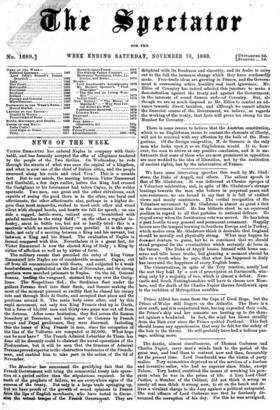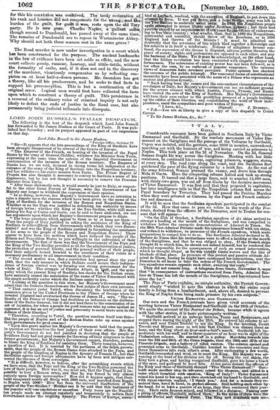The deaths, almost simultaneous, of Thomas Cochrane and Charles Napier,
carry men's minds back to the period of the great war, and lead them to contrast now and then, favourably for the present time. Lord Dundonald was the victim of party malice. Tory animosities deprived us of the services of a fearless and inventive sailor, who had no superior since Blake, except Nelson. Tory hatred contrived the means of wrecking his pros- pects when he was in the prime of life. A Tory Lord Chief Justice, a Member of the Cabinet, did not think it wrong as nearly all men think it wrong now, to sit on the bench and de- liver a virulent charge to the Jury against a political antagonist. The real offence of Lord Cochrane was that he fearlessly de- nounced the corruption of his day. For this he was arraigned, for this his conviction was contrived. The Wdy restoration of his rank and honours did not compensate for the utong ; and the burden of the guilt, for guilt it !as, rests upon the old Tory
party. He is ably eharles tt' 'gallant sailor though second to Dundonald, has passed away at the same time. The remains of Dundonald are to repose in Westminster Abbey. Why should not both these seamen rest in the same grave ?



























